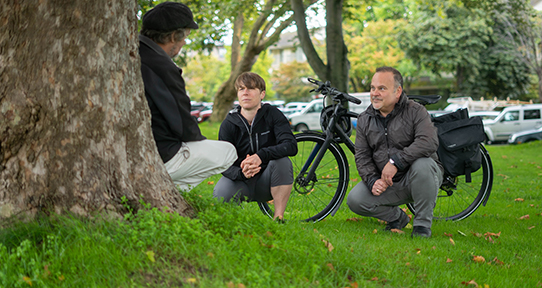ePAC research leads to better end-of-life care for people in poverty

Death may be the great equalizer, but access to good end-of-life care is rarely equitable. A new mobile palliative care program is addressing that imbalance by providing care and dignity to people in Victoria with life-limiting illnesses who are homeless and living in poverty.
The Palliative Outreach Resource Team (PORT)—launched Sept. 19—is built upon lessons learned from a three-year study led by UVic palliative care researcher Kelli Stajduhar, lead investigator of the Equity in Palliative Approaches to Care program with the Institute on Aging and Lifelong Health and the School of Nursing.
The study by Stajduhar and Ashley Mollison, project coordinator and PhD student, followed 25 people living homeless or barely housed while struggling with life-threatening medical conditions. Their 2018 report, Too little, too late: How we fail vulnerable Canadians as they die and what to do about it, found that homeless and barely housed people have to navigate many systems—health care, housing, social care—and that as their health declines, their ability to access these systems also declines.
